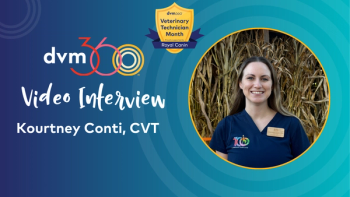
Publishing enhances graduates' resumés
University of Pennsylvania ranks first in research contributions to top journals, college dean claims
Philadelphia-The "publish or perish" adage in academia rarelyapplies to veterinary students, yet college leaders claim carrying out scientificresearch and having it accepted by peer-reviewed journals can boost anyone'sjob prospects, even those embarking on a clinical career.
Research documents and validates that a student has engaged in rigorousintellectual activity, says Dr. Ludeman Eng, head of biomedical sciencesand pathobiology at Virginia-Maryland Regional College of Veterinary Medicine.
"Many students would benefit from greater exposure to more researchactivity than they receive," Eng says. "It's not the normal clinicalcurriculum but a valued activity that develops the intellectual sharpnessof students."
The road to being read
For students en route to a Ph.D. or on a government professional track,the ability to conduct and develop research as well as write a report isimperative. But the knowledge applies to those with all kinds of careeraspirations, says Dr. Sawkat Anwer, professor and chair of Tufts UniversitySchool of Veterinary Medicine Department of Biomedical Sciences.
"The way it works is when a student has been published, it tellsemployers a lot about that person in terms of his or her ability to readliterature, find the hole, propose a hypothesis, experiment and discoversomething new," Anwer says. "This applies to various aspects oflife, to all students no matter what they are pursuing."
In many ways, clinicians are as much experimentalists as some laboratoryresearchers, adds Dr. Alan Kelly, dean of the University of Pennsylvania(UP) School of Veterinary Medicine.
"You don't want those in the clinical department so tied up withcases they don't have the opportunity to do research and be published,"he says. "If students are going into clinical medicine, learning howyou do controlled experiments, do the research and read it makes you a muchmore critical clinician."
Recognizing opportunities
Finding time to perform research is key, Anwer says. Students on theresearch track at Tufts prepare during the first and second semesters oftheir inaugural year. Instructed to write a proposal, the students workwith faculty mentors to support their first experiments. In the end, theywrite a report.
"The writing of this report is more important then what they'veactually found," Anwer says. "Some may even get published. Weget on average one or two a year finding their way into peer-reviewed journals."
Likewise, Tufts students spending a lot of time on clinical projectscan work perspective studies, sometimes doing the legwork for cases generatingfaculty reports.
"If a student in his for her fourth year notices something usualin a case, the student's encouraged to write it up as a case report,"Anwer says. "For employers, it's a sign that here's a person who cananalyze information, which is helpful in clinical practice."
At the top
All veterinary medical institutions perform a fair amount of scholarlyactivity and investigative work to advance
the profession. But among programs receiving most of the nation's federalresearch funding, UP's School of Veterinary Medicine employs the largestveterinary research enterprise in the country. The proof, UP's Kelly claims,is in the numbers.
Based on data derived from the Institute for Basic Science Information,Kelly and his staff compared UP's publishing rates in widely read journals.
"We do much better than anybody else in terms of publishing in highimpact journals," he says. "We have a great emphasis on basicresearch."
Between September 1992 and September 2002, for example, UP faculty publishedtwice as frequently in the highest impact scientific journals such as Natureand Science than any of the top National Institute of Health-funded colleges,Kelly reports.
The findings might give the school an edge, Kelly says, but veterinaryinstitutions including UP still aren't doing enough to attract studentsand scholarships to research.
"I don't think we have done enough in veterinary medicine to helpfinance students to go into research," he says. "Research createsa thought process that's tremendously important. It does a great deal toprepare a student for practice and to foresee the direction veterinary medicinewill take in the future."
Newsletter
From exam room tips to practice management insights, get trusted veterinary news delivered straight to your inbox—subscribe to dvm360.






